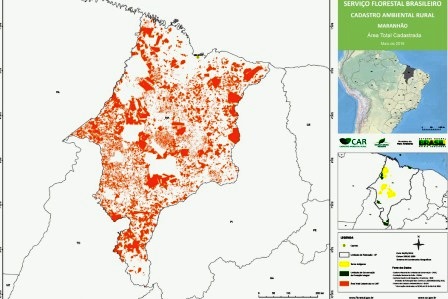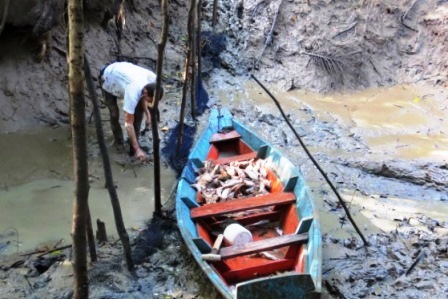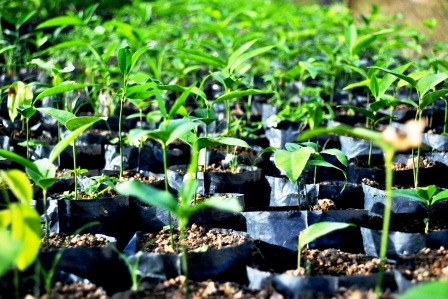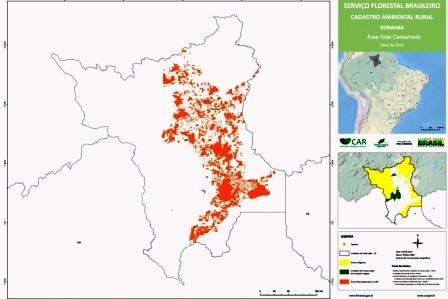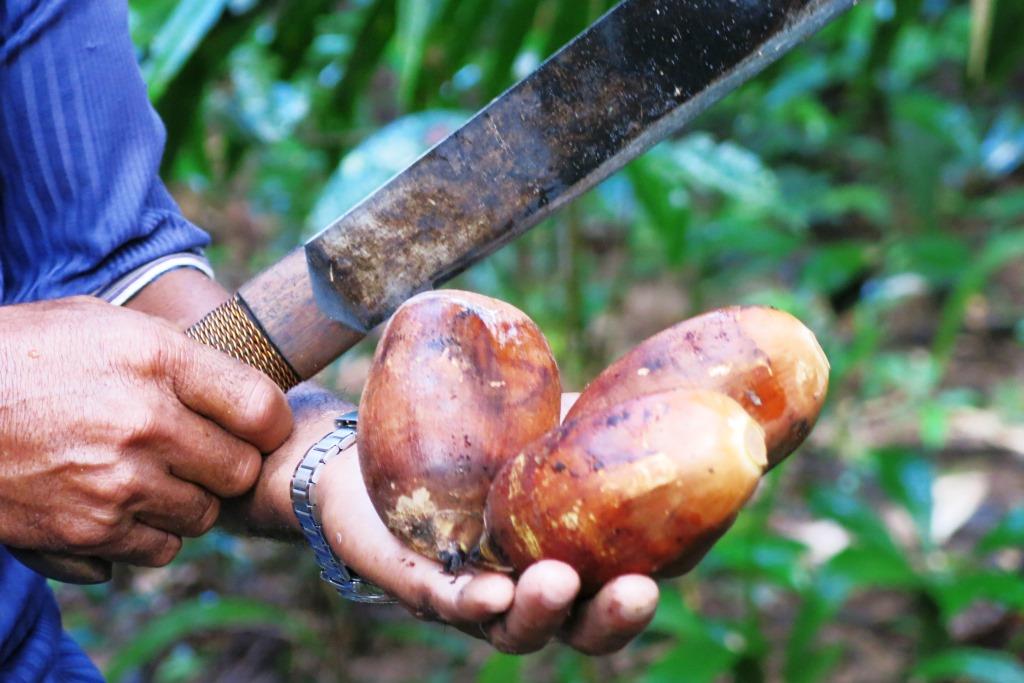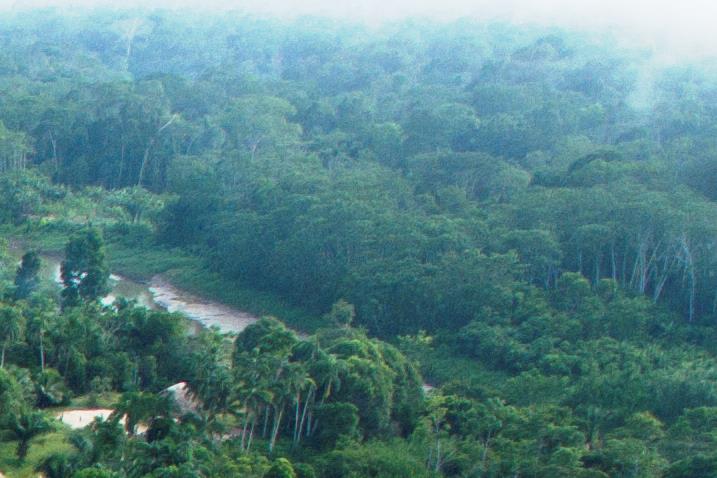On the other hand, some indicators fell short of the targets, reflecting challenges faced during implementation. The number of direct beneficiaries, including women and Indigenous peoples, did not reach the targets due to factors such as difficulties mobilizing communities in remote areas, population shifts, and extreme climate events. Productive and environmental indicators, such as the total number of rural properties supported, the implementation of sustainable production systems, development of management plans, and the areas reforested or restored, also underperformed due to logistical constraints, licensing bottlenecks, and adverse climatic conditions. Economically, revenue from sustainable activities, particularly institutional market sales, remained below target, reflecting structural challenges in commercialization and fluctuations in demand. Moreover, the planned technical publications were not produced, as efforts were focused on implementing subprojects.
In summary, although some targets were not met, the indicators show that the project achieved significant progress in strategic areas such as capacity building, productive infrastructure, community engagement, and institutional strengthening. The challenges identified also offer important lessons for improving future initiatives aimed at sustainable development in the Amazon.
The project’s implementation was supported by a broad network of institutional partnerships, bringing together government agencies, research institutions, community organizations, and international cooperation entities. Key partners included: the Executive Commission of the Cacao Farming Plan (CEPLAC); the National Council of Extractive Populations (CNS); the National Supply Company (Conab); the Brazilian Agricultural Research Corporation (Embrapa); the National Foundation for Indigenous Peoples (Funai); the Chico Mendes Institute for Biodiversity Conservation (ICMBio); the Federal Institute of Amazonas (IFAM); the National Institute for Colonization and Agrarian Reform (Incra); the Ministry of Agriculture and Livestock (MAPA); the Ministry of Agrarian Development and Family Agriculture (MDA); the Brazilian Micro and Small Business Support Service (Sebrae); the Superintendence of the Manaus Free Trade Zone (Suframa); universities and other institutions that contributed technical analyses, feasibility assessments, and direct support for the development and implementation of subprojects.
FBB and the Amazon Fund played a central role in financing and structuring sustainable community enterprises, providing essential institutional support for carrying out the project’s activities.
Administratively, significant changes occurred in FBB’s organizational structure during the period, aimed at increasing operational efficiency, improving processes, and aligning with best governance practices. FBB prioritized projects linked to strategic areas, modernized procedures, strengthened public selection mechanisms, and improved communication and relationships with partners. Internal regulations were revised, institutional policies were created, and internal control structures were strengthened, ensuring greater transparency and professionalism in management.
FBB has been expanding its efforts to improve institutional governance, strengthen strategic partnerships, and diversify funding sources. This includes updating internal frameworks, enhancing integrity policies, and adopting management practices aligned with international references. With a results-oriented strategy, the institution structured its actions around pillars focused on society, impact, processes, and people development. It also adopted a more specialized internal organization, with teams dedicated to evaluating the effectiveness of programs and projects. These improvements consolidated the administrative foundation needed to support initiatives funded by various mechanisms, including the Amazon Fund.
RISKS AND LESSONS LEARNED
According to FBB, the project had a significant impact on strengthening sustainable value chains, despite the challenges encountered during implementation. The beneficiary reported that delays in obtaining environmental licenses and administrative difficulties faced by community organizations in meeting the requirements of public calls were obstacles that required adaptive strategies and institutional partnerships for resolution.
Among the main lessons learned, FBB highlights the need for greater technical support in preparing proposals and simplifying financing access processes, most of which are carried out through public calls with complex and time‑consuming selection procedures that often prove exclusionary. The lack of digital infrastructure and technical capacity affected community participation, requiring investments in in‑person workshops and specialized consulting to expand access to public calls.
FBB also emphasized that budget rigidity was another difficulty, given rising costs since 2015, which increasingly diverged from the amounts originally projected. Since this rigidity applied to the total value of subprojects, even if remapping between budget categories was allowed, a more flexible financial model is recommended to permit adjustments before execution. Successful actions included the implementation of the Project Management System (SGP) by FBB, which improved agreement oversight and enhanced resource management efficiency. Training cooperative and community association leaders was essential to strengthen governance among beneficiary organizations.
The technical support from the Ministry of the Environment and Climate Change (MMA), the Chico Mendes Institute for Biodiversity Conservation (ICMBio), and the Brazilian Institute of the Environment and Renewable Natural Resources (Ibama) helped expedite environmental licensing, reducing initial administrative impacts and enabling the regularization of registration issues that hindered the formalization of agreements. The continuation of positive impacts beyond the project’s duration will also depend on strategies to address extreme climate events, access to working‑capital credit, and generational succession in value chains. The withdrawal of some participants due to external factors, such as historic flooding in Rondônia and resettlement of families affected by the Santo Antônio Hydropower Plant, highlights the importance of territorial planning and public policies that provide greater security for Amazonian communities. Sustaining the advancements achieved will require strengthening commercialization strategies, expanding access to hybrid financing, and engaging younger generations to ensure that community businesses remain relevant and sustainable in the long term.
SUSTAINABILITY OF RESULTS
Ensuring the sustainability of the initiatives is essential for maintaining the benefits achieved over time. In the context of the project, environmental preservation was strengthened in the areas affected by the subprojects, as the replication and development of social technologies focused on conserving water resources. Actions included the environmental regularization of properties, restoration of riparian vegetation, and support for sustainable value chains such as fish farming, meliponiculture, and horticulture. The positive results achieved through investments, mobilization, and technical training have the potential to continue contributing to environmental regularization and increased income for local producers. Furthermore, these results may serve as a demonstration effect, encouraging more producers to engage in sustainability efforts.
FBB also notes the need for institutional articulation and partnerships to increase the likelihood of success and ensure the sustainability of results. In this regard, it highlights the importance of maintaining continuous technical assistance and training, which requires ongoing commitment from public institutions across different levels of government and the search for new funding sources. Continuity of these actions is crucial for sustaining community engagement and ensuring that sustainable practices become an integral part of the local economy. In summary, the sustainability of the initiatives depends on a combination of factors, including environmental preservation, continued support for sustainable value chains, and institutional engagement. With effective institutional arrangements, the positive results can be maintained and expanded, strengthening the sustainable economy in the region.



